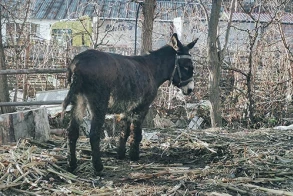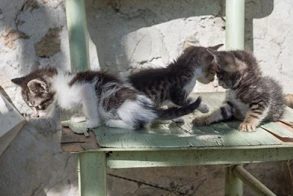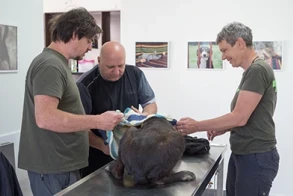MANOL, WHO FOUND US
Before it becomes a familiar presence, every stray dog is ‘the new guy in town’. But in a few months’ time, it becomes one of the locals.
In the villages in the rural territories of Gotze Delchev region, you can point at a dog on the street and always count on someone telling you they know the animal by sight, name, or ‘address’ – dogs tend to stick to the same smaller ‘mahala’ as we say in Bulgaria, which means neighborhood.
That is why the story of Manol is quite extraordinary.
We are in the middle of a neutering campaign. We are in our clinic, working around the clock, when we are presented with a very upsetting picture: a dog in terrible shape is headed our way, despair emanating from his entire being.

This is Manol. He is a shepherd dog mix, about seven years old. He is a sorry sight indeed – skinny, with tufts of fur missing, exposing patches of raw-looking skin. His entire demeanour is of a despondent, miserable dog.
We are surprised to discover that no one knows Manol. (We name him after we take him in.) For an adult dog of his age to wander into a new village is extremely rare, but for him to do it exactly when we are around is nothing short of a miracle. We do our campaigns every few months, not every week. He finds our clinic in the village, too, as if making his very last bid for survival. But the amazing coincidences don’t end here. Keep reading.
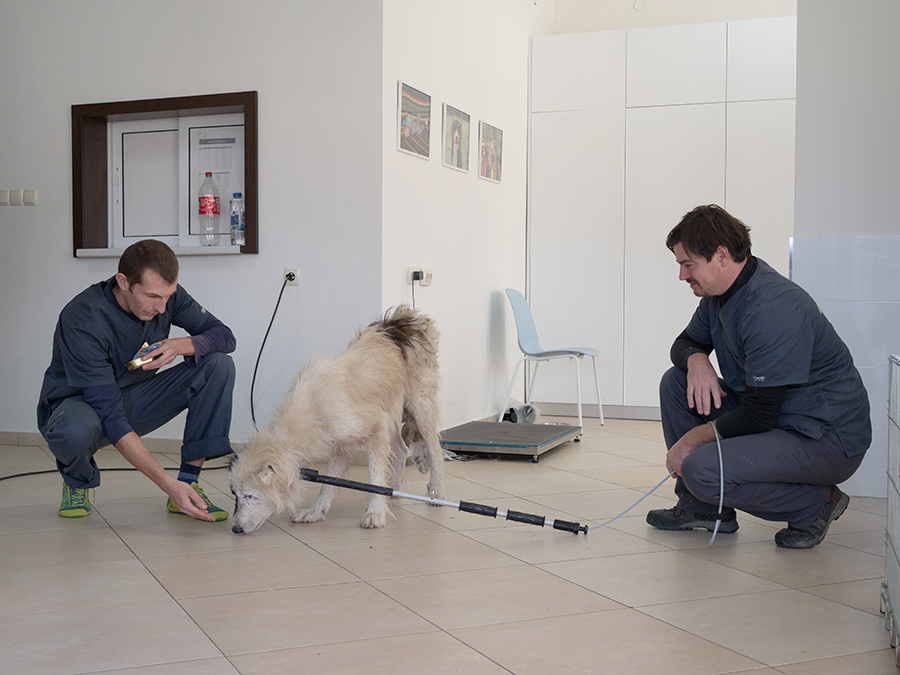
It is not hard to gain Manol‘s trust. He comes into the clinic readily and starts exploring. We let him take his time and sniff around.
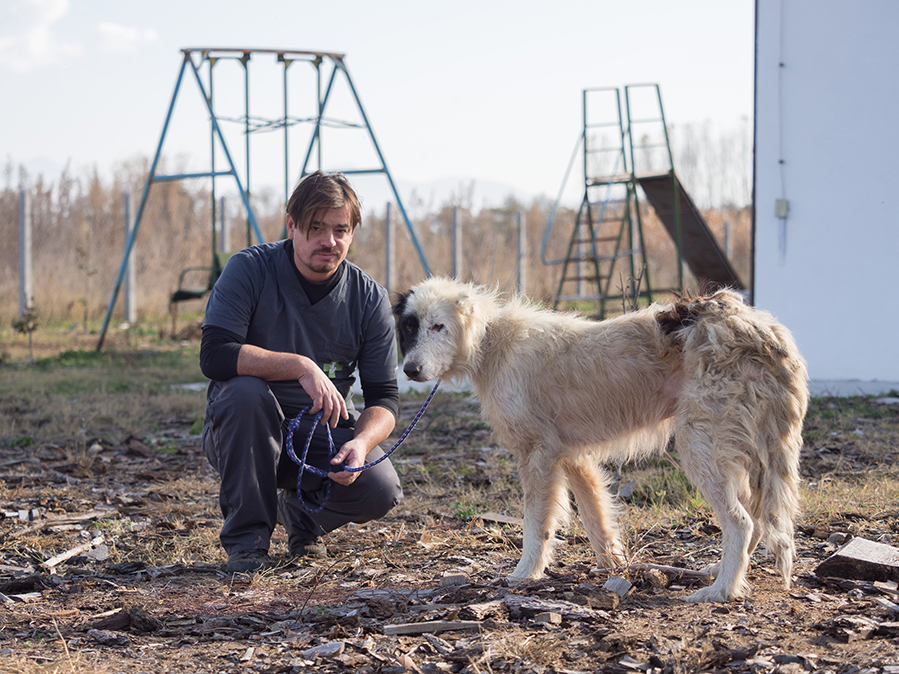
We take him out for a walk around the clinic yard. He is docile and quiet, but he follows us around, checking out the new smells.

The evidence that we are in the presence of a very handsome boy is indisputable. He has just fallen on hard times.

Back in the clinic we examine him in more detail and we see our first impressions were right.
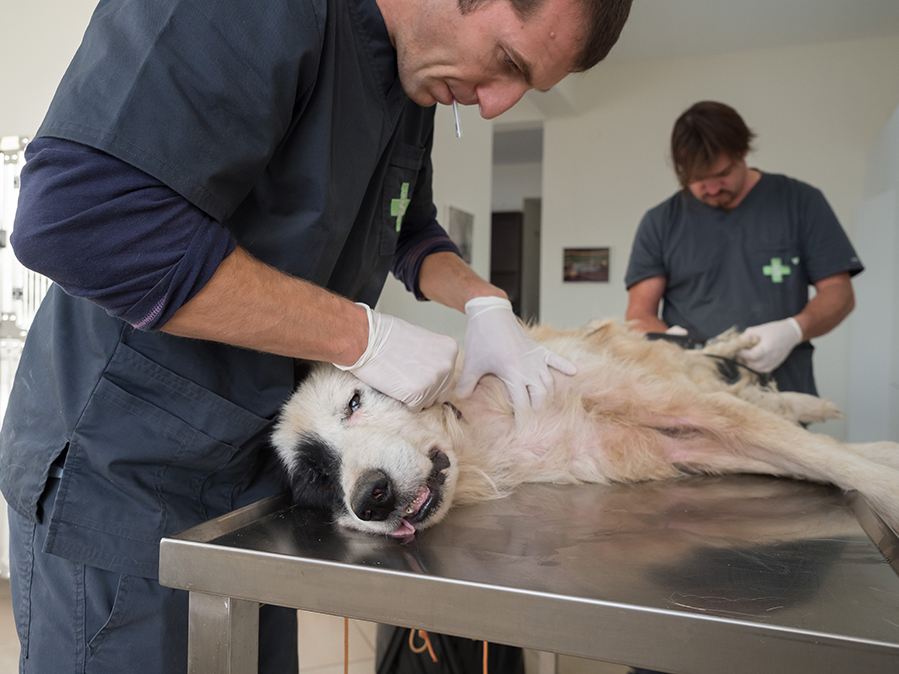
Manol is prepared for neutering. The anaesthesia is an opportunity for a thorough examination.

We draw blood to run some tests too.
The results are back and it’s not good news. Manol has Leishmania, which is sadly an incurable disease, caused by a parasite. It explains his weakened state – lack of appetite and weight loss is one of the key symptoms of the disease. If he hadn’t found us, Manol’s life expectancy would have probably been months, which makes his timing simply amazing.
Though incurable, Leishmania can be kept in check as long as the dog receives treatment. We are always grateful for the financial support we receive but on days like this, the true fortune of being able to be there for dogs like Manol hits us afresh and we appreciate every single donation with all of our heart.
Manol does too, even if he can’t put it into words. We decide to keep him in the Donkey Valley where he can get the best care. (Releasing him would mean a very real risk of infection for other dogs, too.) He will get anti-Leishmania therapy that will have to be part of his life from now on. If treatment is stopped, relapses are frequent and Manol’s prognosis would not be good at all. We’ll make sure that doesn’t happen.
Three months later
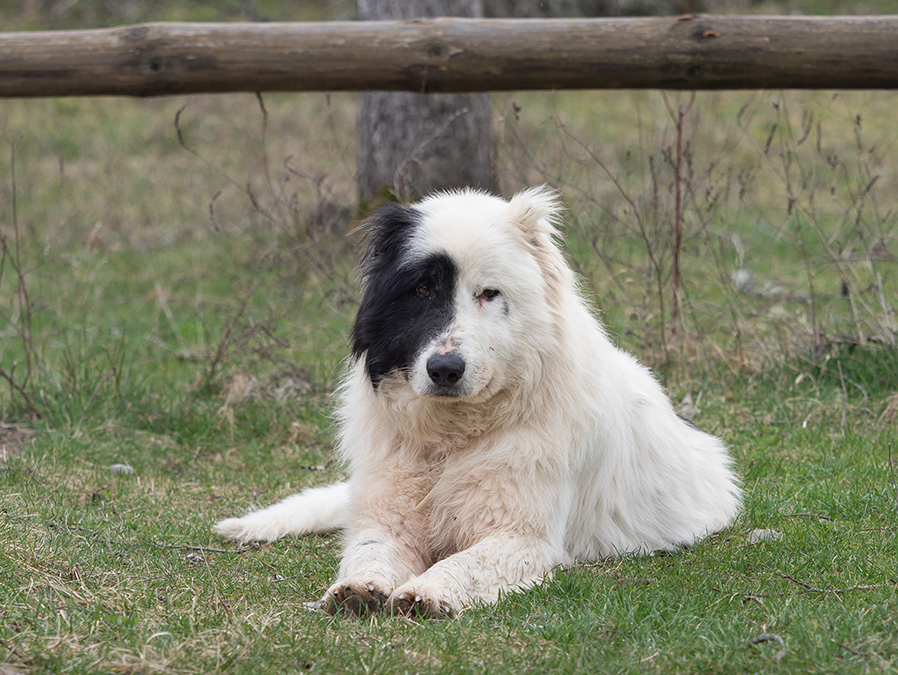
If it wasn’t for the one-of-a-kind black patch around his eye, we wouldn’t recognize Manol! From the moment he came our way, we have been wondering what the ‘real’ Manol looked like behind the mask of a skinny, desperate dog. A few months in the Valley have confirmed what we always suspected: Manol is strikingly handsome, something vaguely reminiscent of a bear cub about him, even if he is close to nine years old – and is, of course, an actual dog.
He has gained weight steadily and his overall condition has improved dramatically thanks to a good diet, necessary medical treatment, and much affection from the staff.
 Manol has his routine: every morning after breakfast and after taking his meds, he goes on a long walk around the valley, always moving slowly and sometimes awkwardly. (We suspect this is due to an old, untreated trauma on his right hind leg.)
Manol has his routine: every morning after breakfast and after taking his meds, he goes on a long walk around the valley, always moving slowly and sometimes awkwardly. (We suspect this is due to an old, untreated trauma on his right hind leg.)
He is a graceful dog in every other way, a distinguished lone figure – Manol is used to being on his own and keeps himself to himself. He doesn’t seek out the company of the other dogs in the Valley; while never aggressive, he expects them to respect his space. He hangs out in the sun for the rest of the day, sleeping or sniffing around, if the weather allows it. If not, there are shelters and warmth available for cozy times.

Manol is not so indifferent with the humans who are part of his daily life and shows them affection – he is clearly attached to them. It is tempting to think he appreciates we threw him a lifeline but that is not the way we want to think about our work – we are just glad to see Manol flourish and enjoy his best life. Anything he wants to offer us in return, we take with gratitude.

Perhaps it is a matter of time for Manol to feel like he is truly a part of the pack – his life doesn’t seem to have helped him develop a sense of belonging. He gets closer and closer to dogs and donkeys with each day, but we are only happy to give Manol the opportunity to be himself and take his time.

